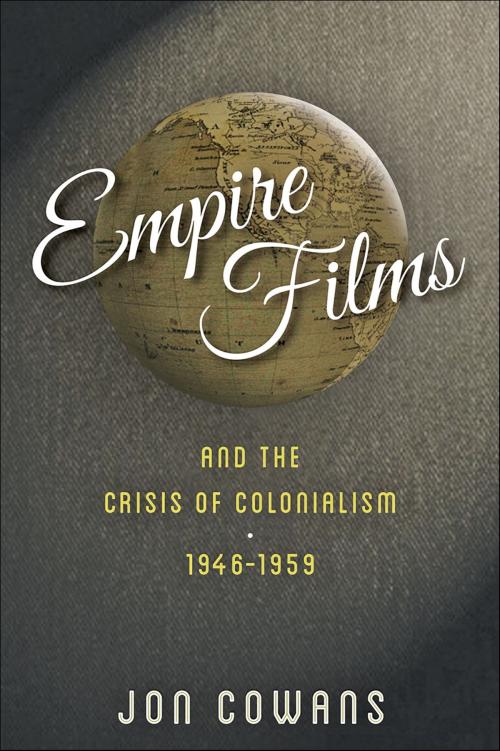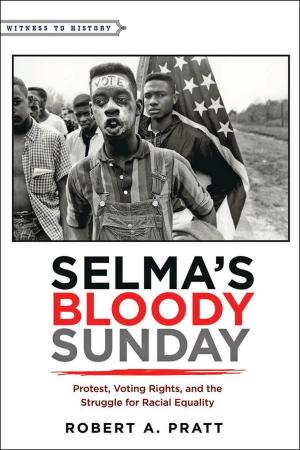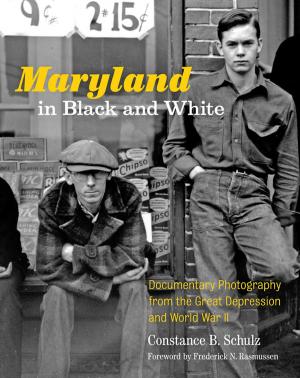Empire Films and the Crisis of Colonialism, 1946–1959
Nonfiction, History, European General, Americas, United States| Author: | Jon Cowans | ISBN: | 9781421416427 |
| Publisher: | Johns Hopkins University Press | Publication: | May 15, 2015 |
| Imprint: | Language: | English |
| Author: | Jon Cowans |
| ISBN: | 9781421416427 |
| Publisher: | Johns Hopkins University Press |
| Publication: | May 15, 2015 |
| Imprint: | |
| Language: | English |
Using popular cinema from the United States, Britain, and France, Empire Films and the Crisis of Colonialism, 1946–1959, examines postwar Western attitudes toward colonialism and race relations. Historians have written much about the high politics of decolonization but little about what ordinary citizens thought about losing their empires. Popular cinema provided the main source of images of the colonies, and, according to Jon Cowans in this far-reaching book, films depicting the excesses of empire helped Westerners come to terms with decolonization and even promoted the dismantling of colonialism around the globe.
Examining more than one hundred British, French, and American films from the post–World War II era, Cowans concentrates on movies that depict interactions between white colonizers and nonwhite colonial subjects, including sexual and romantic relations. Although certain conservative films eagerly supported colonialism, Cowans argues that the more numerous "liberal colonialist" productions undermined support for key aspects of colonial rule, while a few more provocative films openly favored anticolonial movements and urged "internal decolonization" for people of color in Britain, France, and the United States.
Combining new archival research on the films’ production with sharp analysis of their imagery and political messages, the book also assesses their reception through box-office figures and newspaper reviews. It examines both high-profile and lesser-known films on overseas colonialism, including The King and I, Bhowani Junction, and Island in the Sun, and tackles treatments of miscegenation and "internal colonialism" that appeared in Westerns and American films like Pinky and Giant. The first truly transnational history of cinema’s role in decolonization, this powerful book weaves a unified historical narrative out of the experiences of three colonial powers in diverse geographic settings.
Using popular cinema from the United States, Britain, and France, Empire Films and the Crisis of Colonialism, 1946–1959, examines postwar Western attitudes toward colonialism and race relations. Historians have written much about the high politics of decolonization but little about what ordinary citizens thought about losing their empires. Popular cinema provided the main source of images of the colonies, and, according to Jon Cowans in this far-reaching book, films depicting the excesses of empire helped Westerners come to terms with decolonization and even promoted the dismantling of colonialism around the globe.
Examining more than one hundred British, French, and American films from the post–World War II era, Cowans concentrates on movies that depict interactions between white colonizers and nonwhite colonial subjects, including sexual and romantic relations. Although certain conservative films eagerly supported colonialism, Cowans argues that the more numerous "liberal colonialist" productions undermined support for key aspects of colonial rule, while a few more provocative films openly favored anticolonial movements and urged "internal decolonization" for people of color in Britain, France, and the United States.
Combining new archival research on the films’ production with sharp analysis of their imagery and political messages, the book also assesses their reception through box-office figures and newspaper reviews. It examines both high-profile and lesser-known films on overseas colonialism, including The King and I, Bhowani Junction, and Island in the Sun, and tackles treatments of miscegenation and "internal colonialism" that appeared in Westerns and American films like Pinky and Giant. The first truly transnational history of cinema’s role in decolonization, this powerful book weaves a unified historical narrative out of the experiences of three colonial powers in diverse geographic settings.















